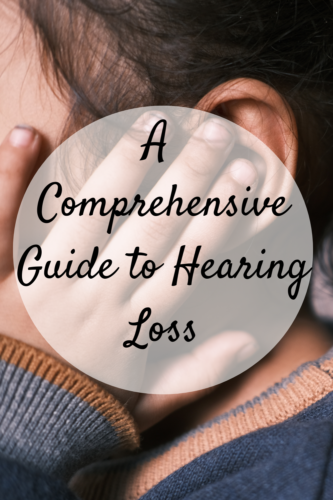
Hearing loss affects millions worldwide; therefore, it is only right to learn about this chronic condition. This guide can help anyone looking for a better understanding and knowledge of the topic. Whether you suffer or want to support someone dear to you, acquiring the correct information can be critical in providing appropriate tools and resources to live a full life with hearing impairments. Below is a comprehensive overview of hearing loss, symptoms, diagnosis, causes, treatments, and prevention.
What Is Hearing Loss?
Hearing loss is an abnormal or reduced sensitivity to sound. It can affect one or both ears and range from mild to severe. Hearing loss is sometimes permanent, but it may also be temporary. There are three main types of hearing loss:
- Conductive hearing loss is due to outer or middle ear damage that prevents sound waves from reaching the inner ear.
- Sensorineural hearing loss happens when sound waves can’t reach the inner ear correctly due to damaged hair cells in the cochlea or auditory nerve damage.
- Mixed hearing loss is a combination of both conductive and sensorineural losses at the same time.
Causes
Hearing loss can be caused by various factors, from prolonged exposure to loud noises, aging, ear infections, genetic predispositions, head injuries, certain medications, and certain diseases. It’s important to understand that everyone experiences hearing loss differently, so there is no specific management approach.
Signs of Hearing Loss
When someone has hearing loss, they may experience difficulty following conversations in noisy environments, difficulty understanding high-pitched sounds, a ringing sensation in the ears (tinnitus), and changes in the ability to hear clearly.
Diagnosis
A qualified hearing health professional must perform an audiometric evaluation to diagnose hearing loss accurately. This involves playing tones at different frequencies and volumes and asking the patient to identify them. The results of this test are used to create an audiogram which is then used for diagnosis and treatment planning. If you are having difficulty hearing, it is important to consult a qualified professional at HearCanada for an accurate diagnosis.
In addition to this, if you’re in the Los Angeles area and looking for top-notch audiology services, consider reaching out to Los Angeles best audiologist. They offer comprehensive hearing evaluations and personalized treatment plans to ensure you receive the best care for your hearing health. Don’t let hearing loss affect your quality of life, get in touch with a professional today.
Management
The first step in managing hearing loss is to get an accurate diagnosis from a qualified hearing health professional. They can provide the best advice on what type of treatment you may require, such as assistive listening devices or cochlear implants. There are also lifestyle changes that can be made to help manage hearing loss, such as avoiding loud noises and wearing ear protection.
Prevention
The best way to prevent hearing loss is to protect your ears from loud noises. Wearing earplugs or protective headphones in noisy environments, such as concerts and clubs, can help reduce your risk of experiencing hearing loss. Additionally, being aware of your medications and regular checkups with your audiologist reduce the risk of hearing loss.
Living With Hearing Loss
Living with any disability can be difficult, but there are a few steps you can take to make living with hearing loss easier. These include:
- Learning sign language
- Joining a local support group for people with similar conditions
- Researching available resources for assistance with daily activities,
- Finding ways to communicate more effectively with family members and friends who don’t understand sign language
- Utilizing assistive technology such as captioning services on television programs or audio description services at movie theaters
- Investing in noise-canceling headphones or other listening devices designed for people with impaired hearing
- Seeking regular counseling services if needed
Hearing loss can be challenging to manage; however, it is possible to protect your hearing health with the right information and support. By understanding the different types, causes, signs, and symptoms of hearing loss, you can take steps toward preventing it or finding the best treatment option.





Leave a Reply